

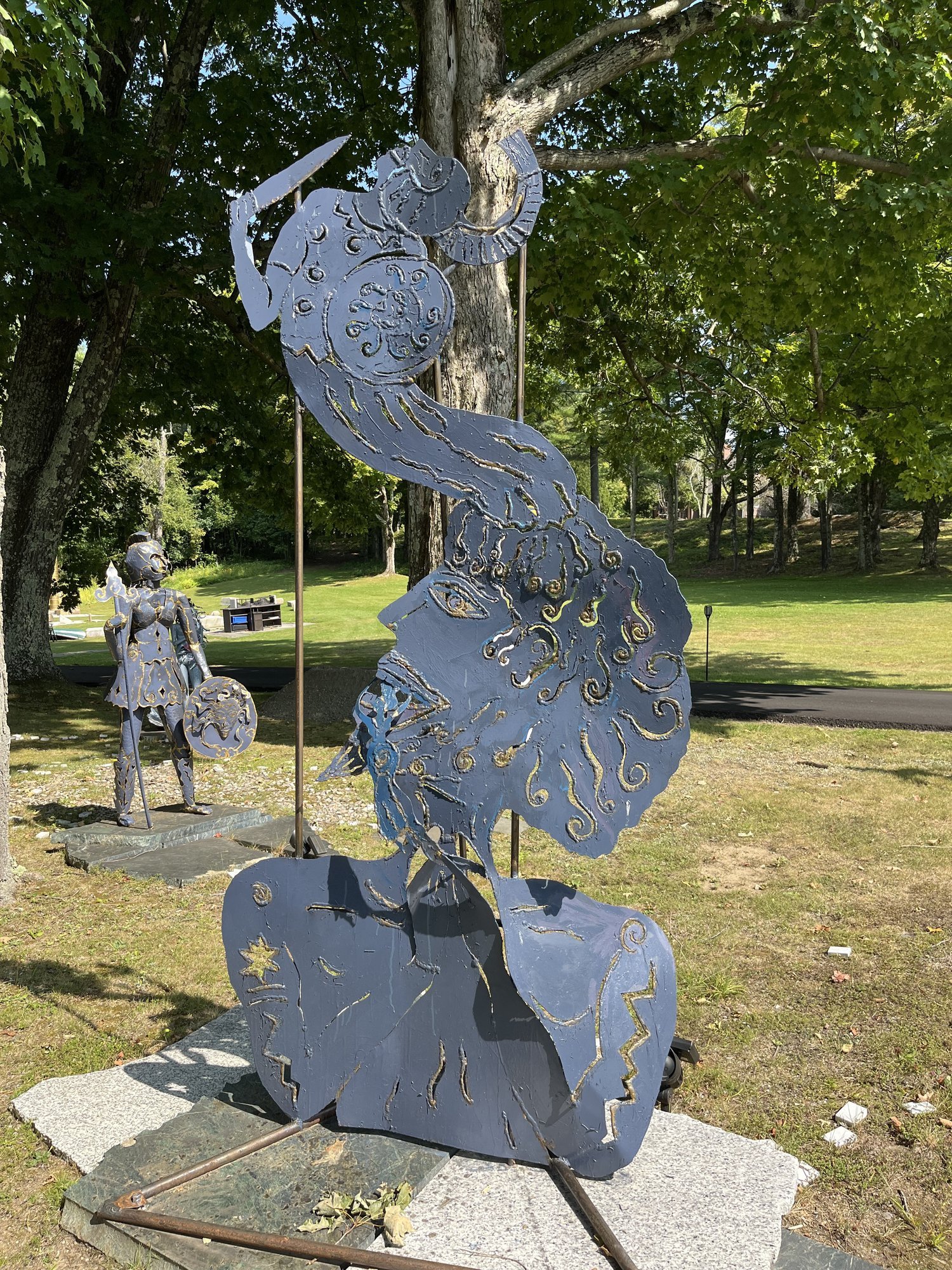
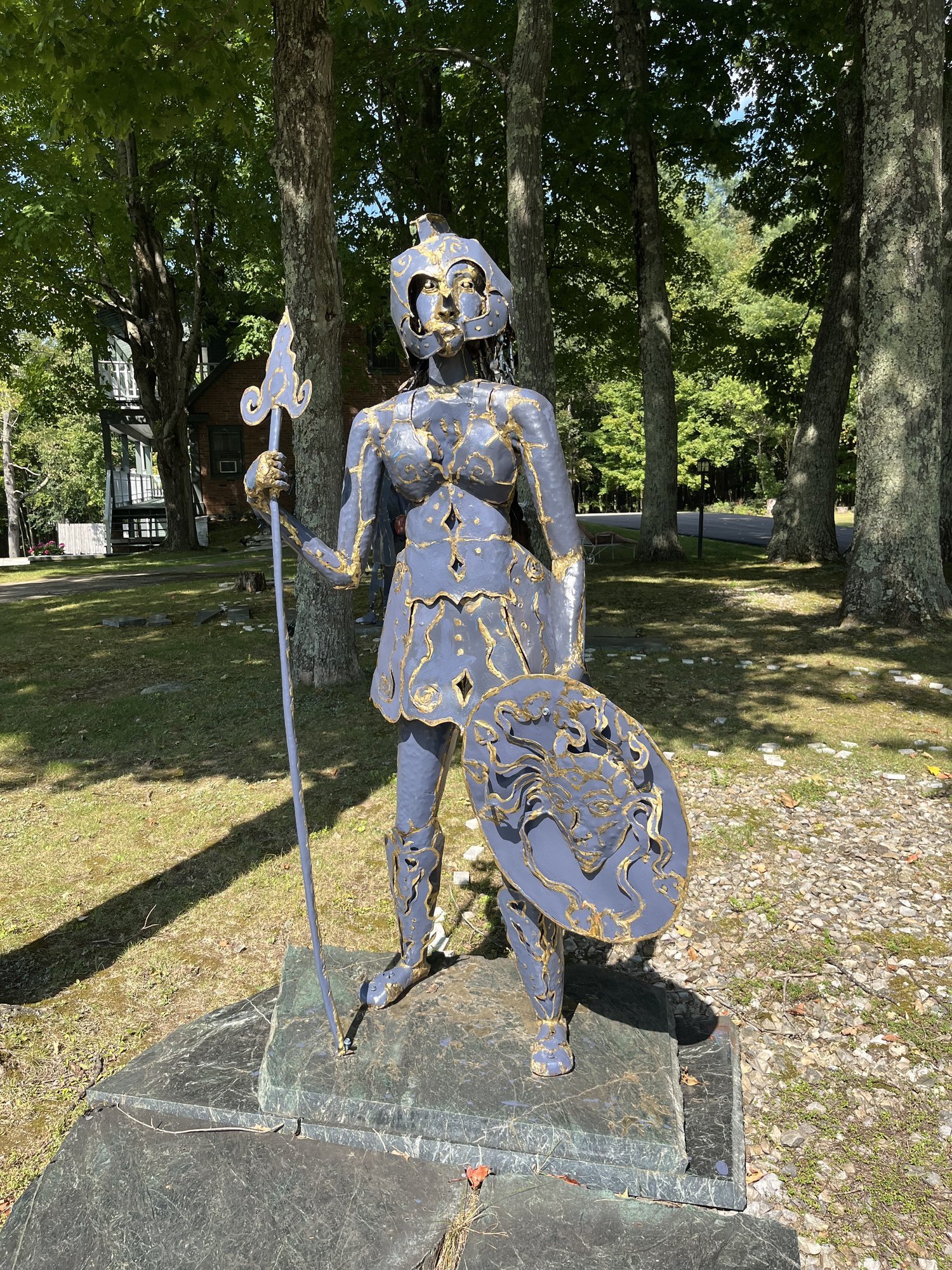

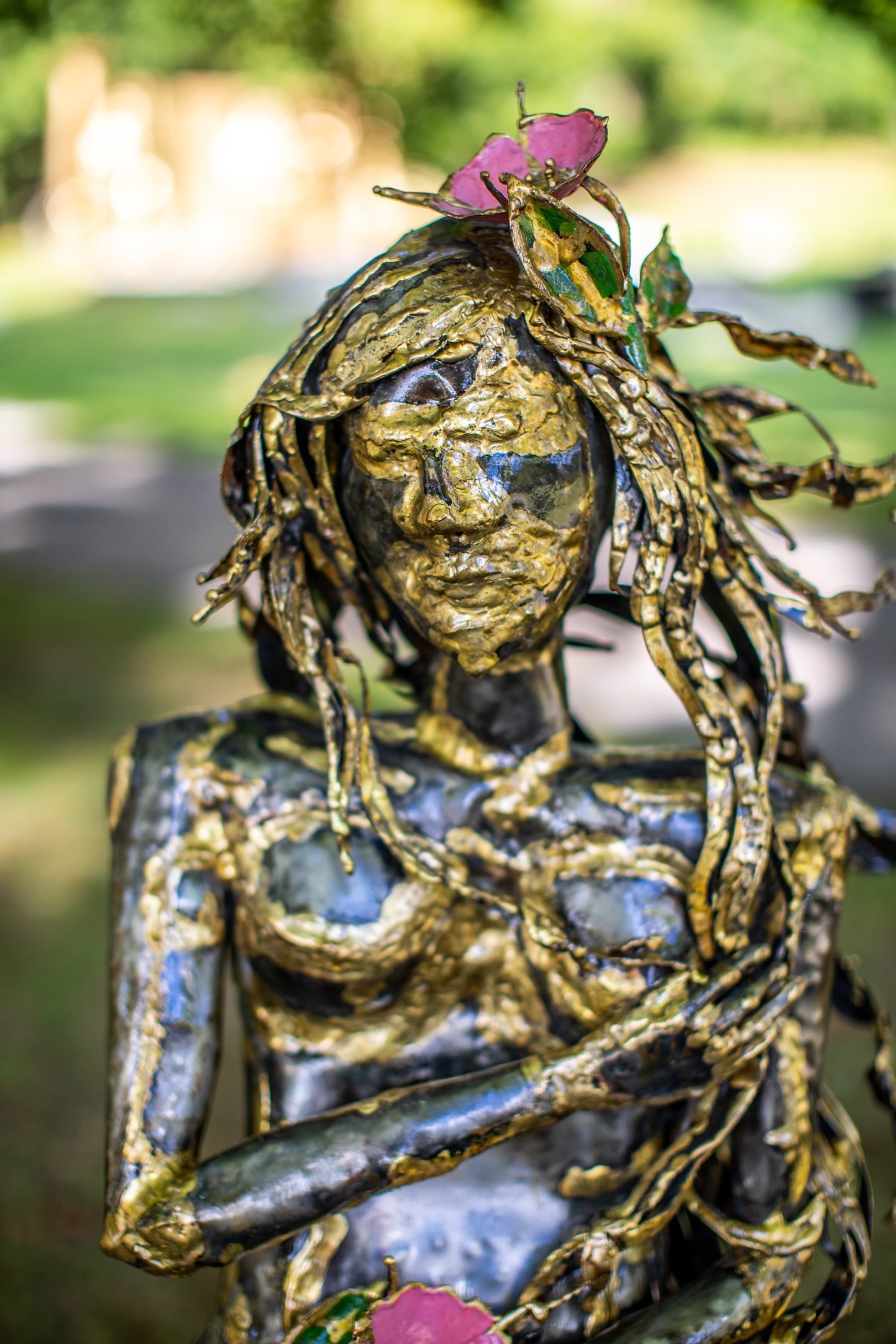

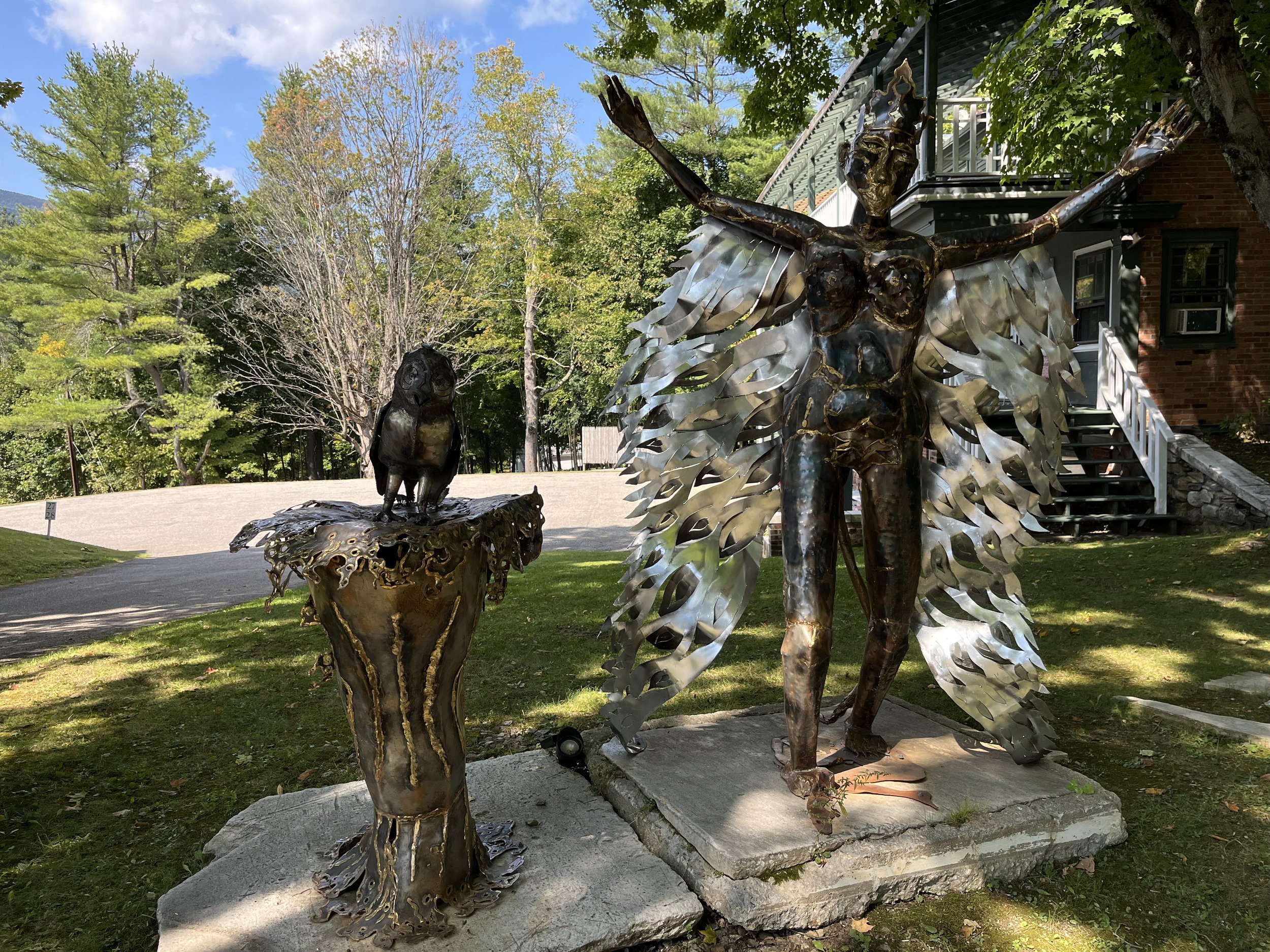
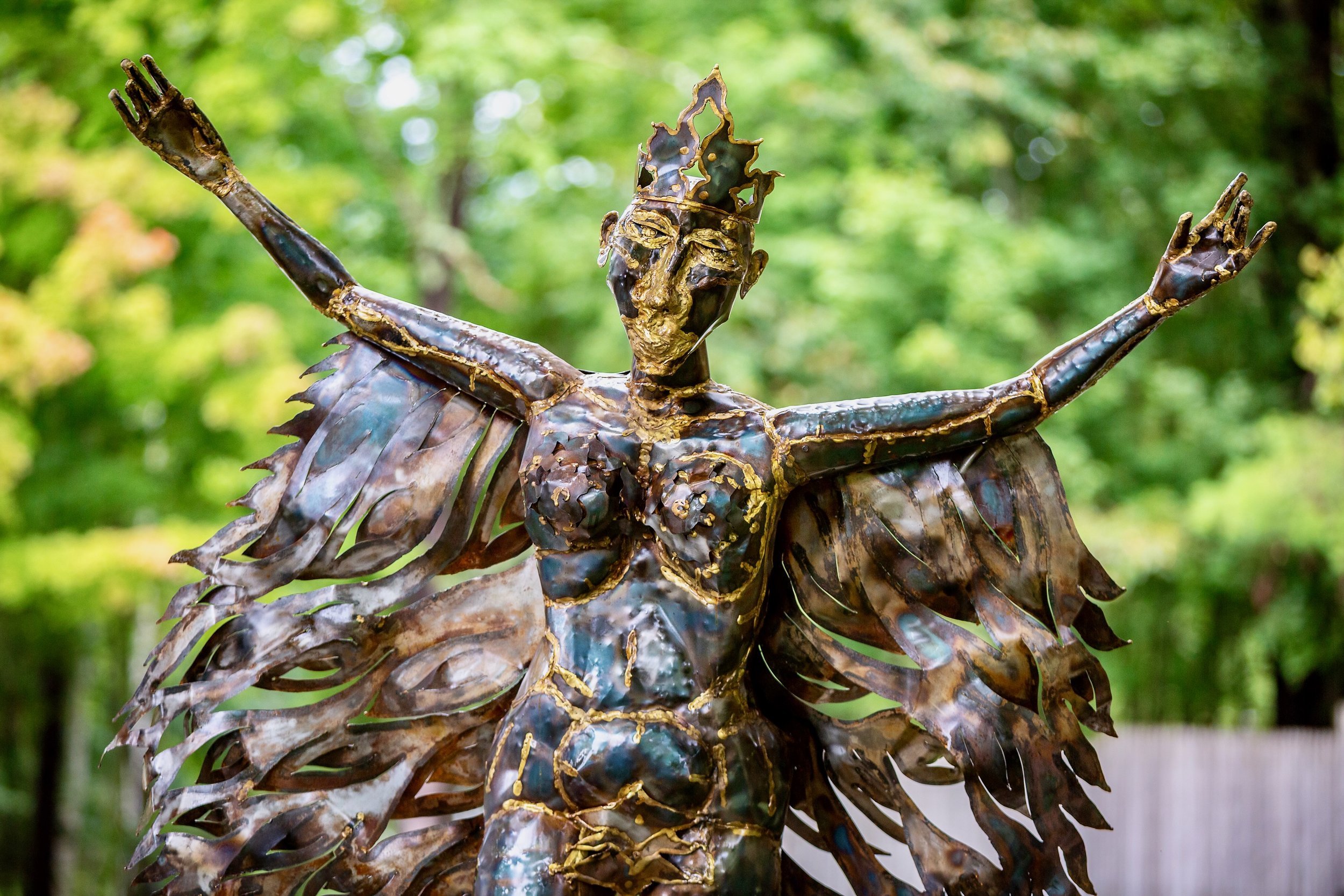
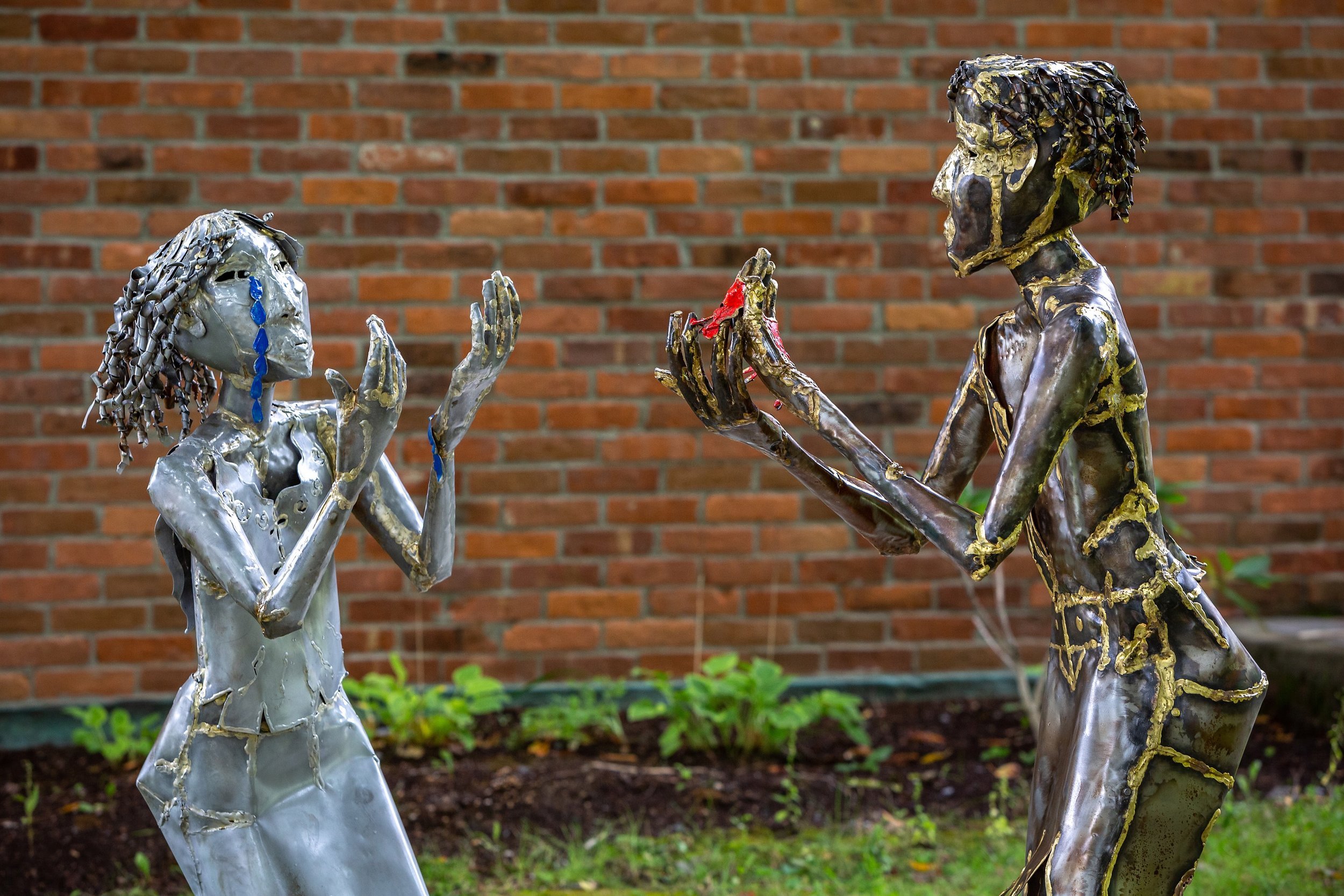
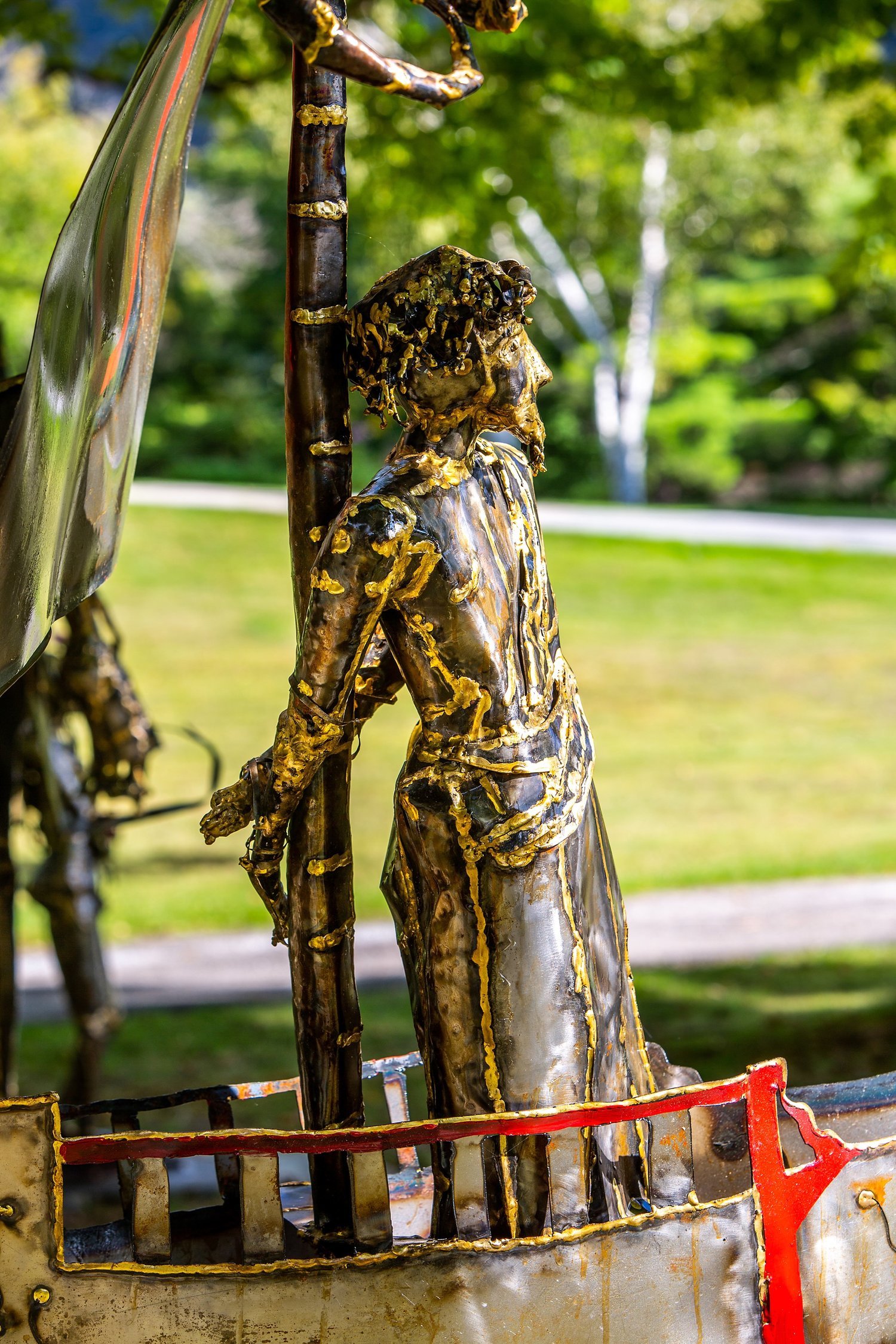
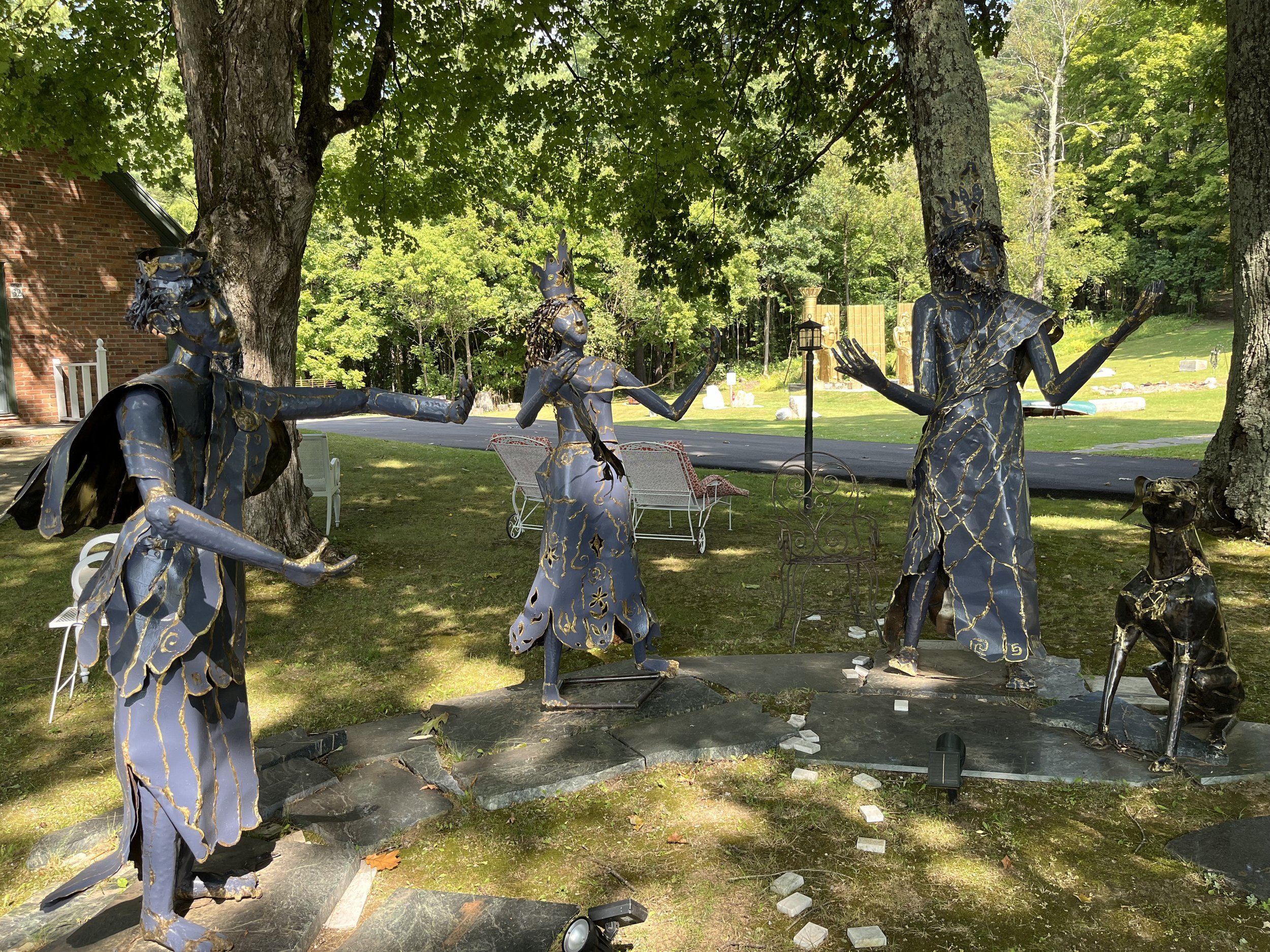
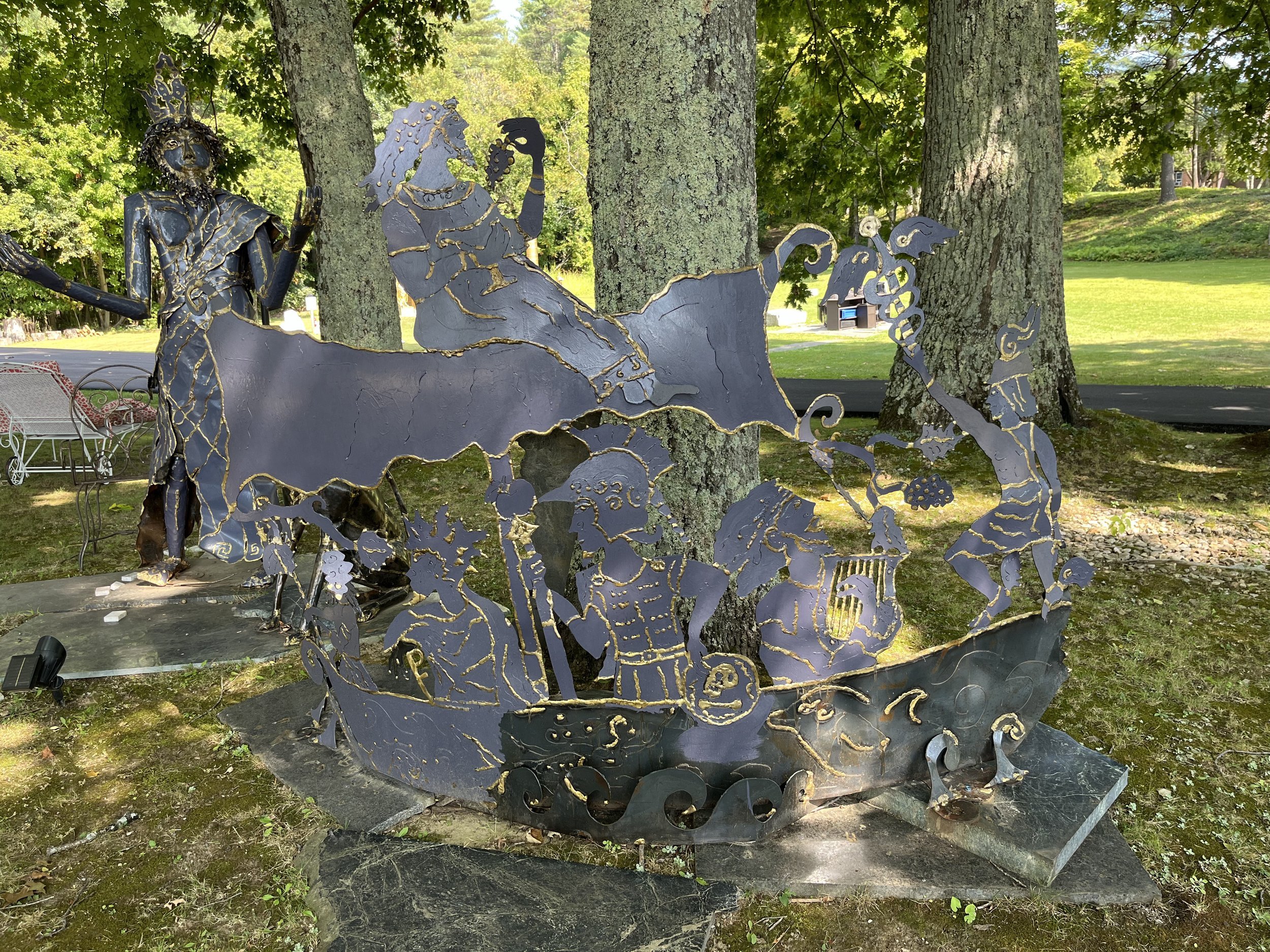
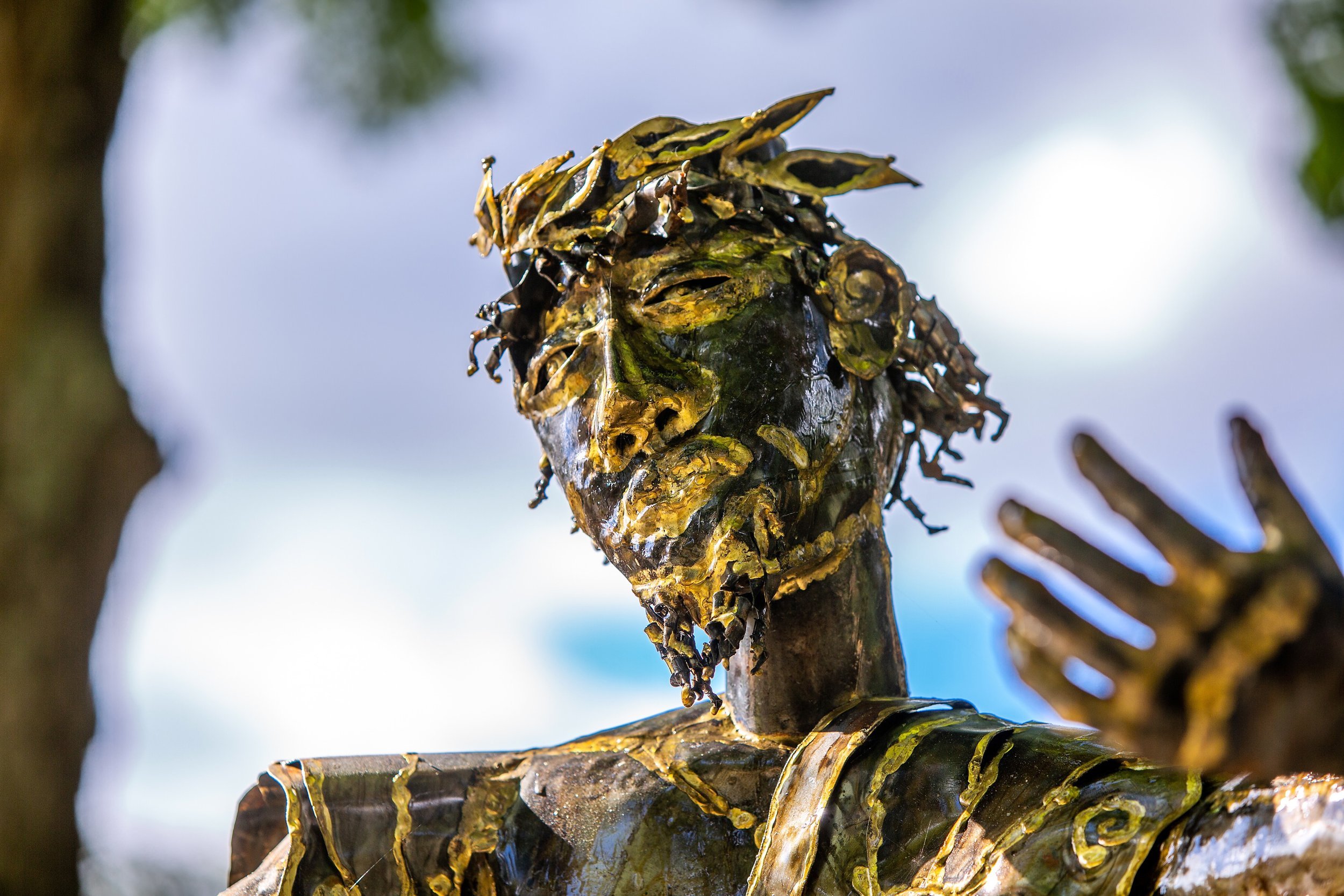
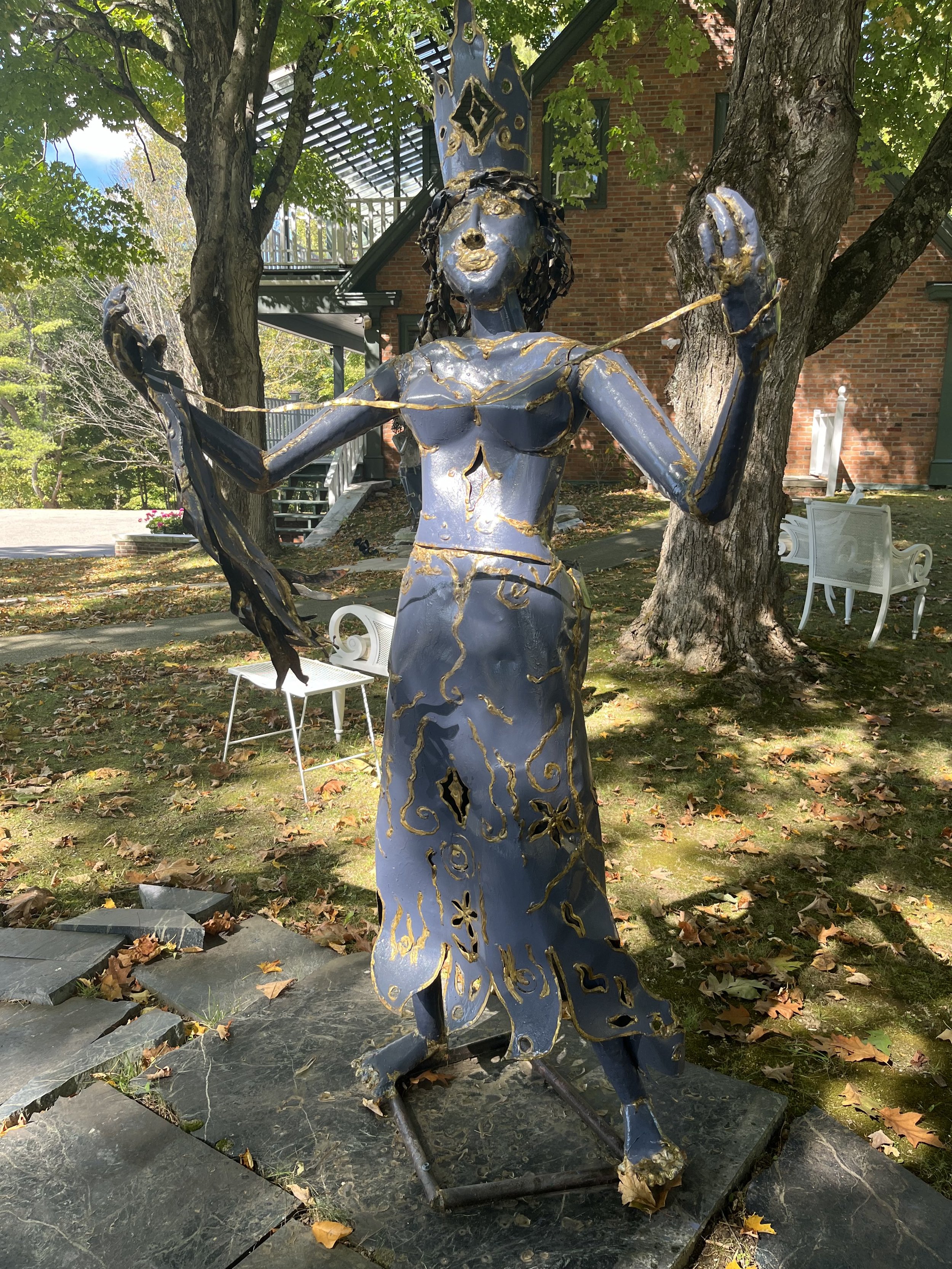
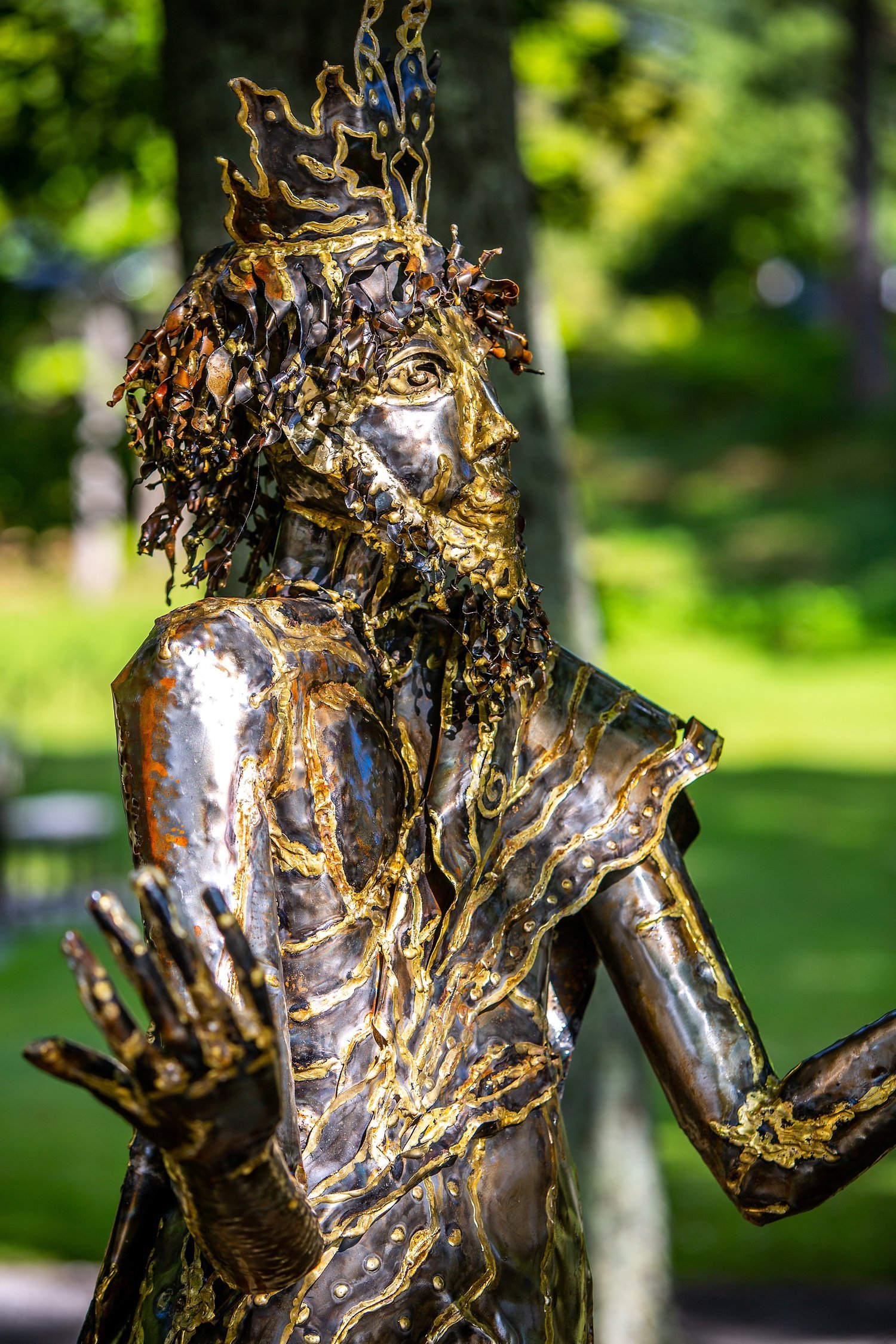
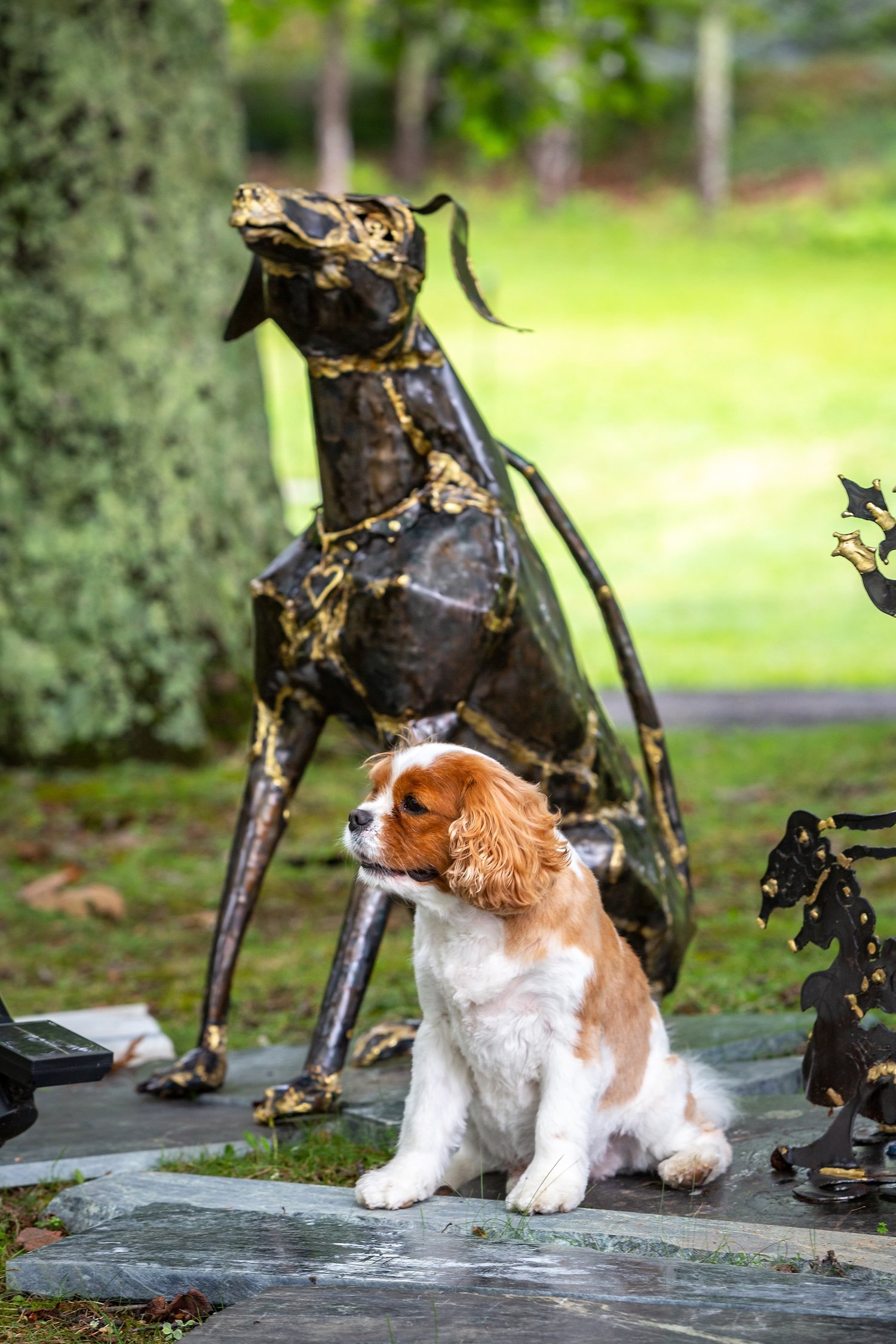

Zeus with Ios on his lap, defining patriarchy as a man having multiple affairs. Angry Hera, Zeus’ wife, is holding two snakes with which she wants to kill Hercules, Zeus’ extramarital son.

Upon eating pregnant Metis, Zeus gave birth to Athena, born out of his head, nearly killing him.

Athena is presented in her identity as prepared for a fight defending virginity; She has a shield portraying the head of Medusa. She is presented as the woman who is wise and empowered.

The Homeric drama begins with Aphrodite seeking the apple inscribed to the fairest. This is a symbol of antagonism. To win the apple the goddess chose to offer to Paris a woman who had taken the vows of fidelity challenging the power of patriarchy in domesticating women.

Paris accepted the award, a married woman, but paid the price of a war that destroyed Troy.

The Iliad, an epic about violating the vows, ends as a tragedy. Agamemnon, the leader of the war, upon his homecoming was murdered by his wife, Sphinx-looking Clytemnestra and Aegisthus, her lover.

The tragedy was compounded as Clytemnestra was in her turn murdered by her children: Electra, her daughter and Orestes, her son.

The Odyssey, unlike the Iliad, has a happy ending. Odysseus stays faithful to Penelope, tying himself to the mast and resisting the temptation of the sirens. Penelope like Athena guards her virginity weaving a shroud. The message for the culture is women persevering, respecting the concept of the vows, as fidelity, loyalty to their husbands

The next installation celebrates Odysseus' homecoming; he is welcomed by Penelope, his faithful wife, respectful son Telemachus and his loyal dog Argos.

A boat of Olympian gods brings presents to the couple celebrating the vows as the key to resolving marital conflicts.